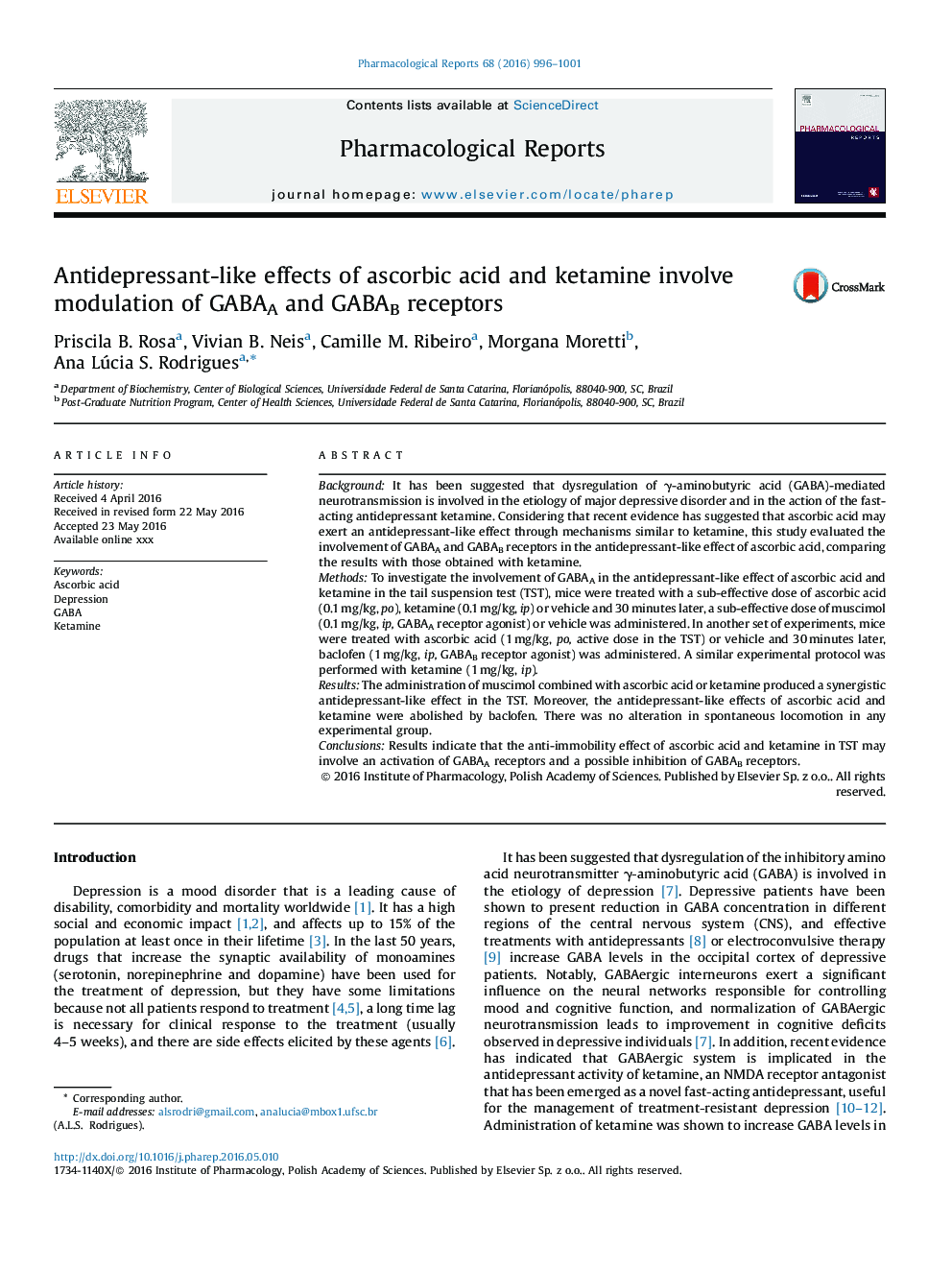| کد مقاله | کد نشریه | سال انتشار | مقاله انگلیسی | نسخه تمام متن |
|---|---|---|---|---|
| 2010690 | 1066986 | 2016 | 6 صفحه PDF | دانلود رایگان |
• Ascorbic acid and ketamine have antidepressant effects in the tail suspension test.
• Ascorbic acid and muscimol co-administration has antidepressant effect in mice.
• Ketamine and muscimol co-administration elicits an anti-immobility effect in mice.
• Baclofen prevents antidepressant-like effect of ascorbic acid and ketamine in mice.
BackgroundIt has been suggested that dysregulation of γ-aminobutyric acid (GABA)-mediated neurotransmission is involved in the etiology of major depressive disorder and in the action of the fast-acting antidepressant ketamine. Considering that recent evidence has suggested that ascorbic acid may exert an antidepressant-like effect through mechanisms similar to ketamine, this study evaluated the involvement of GABAA and GABAB receptors in the antidepressant-like effect of ascorbic acid, comparing the results with those obtained with ketamine.MethodsTo investigate the involvement of GABAA in the antidepressant-like effect of ascorbic acid and ketamine in the tail suspension test (TST), mice were treated with a sub-effective dose of ascorbic acid (0.1 mg/kg, po), ketamine (0.1 mg/kg, ip) or vehicle and 30 minutes later, a sub-effective dose of muscimol (0.1 mg/kg, ip, GABAA receptor agonist) or vehicle was administered. In another set of experiments, mice were treated with ascorbic acid (1 mg/kg, po, active dose in the TST) or vehicle and 30 minutes later, baclofen (1 mg/kg, ip, GABAB receptor agonist) was administered. A similar experimental protocol was performed with ketamine (1 mg/kg, ip).ResultsThe administration of muscimol combined with ascorbic acid or ketamine produced a synergistic antidepressant-like effect in the TST. Moreover, the antidepressant-like effects of ascorbic acid and ketamine were abolished by baclofen. There was no alteration in spontaneous locomotion in any experimental group.ConclusionsResults indicate that the anti-immobility effect of ascorbic acid and ketamine in TST may involve an activation of GABAA receptors and a possible inhibition of GABAB receptors.
Journal: Pharmacological Reports - Volume 68, Issue 5, October 2016, Pages 996–1001
